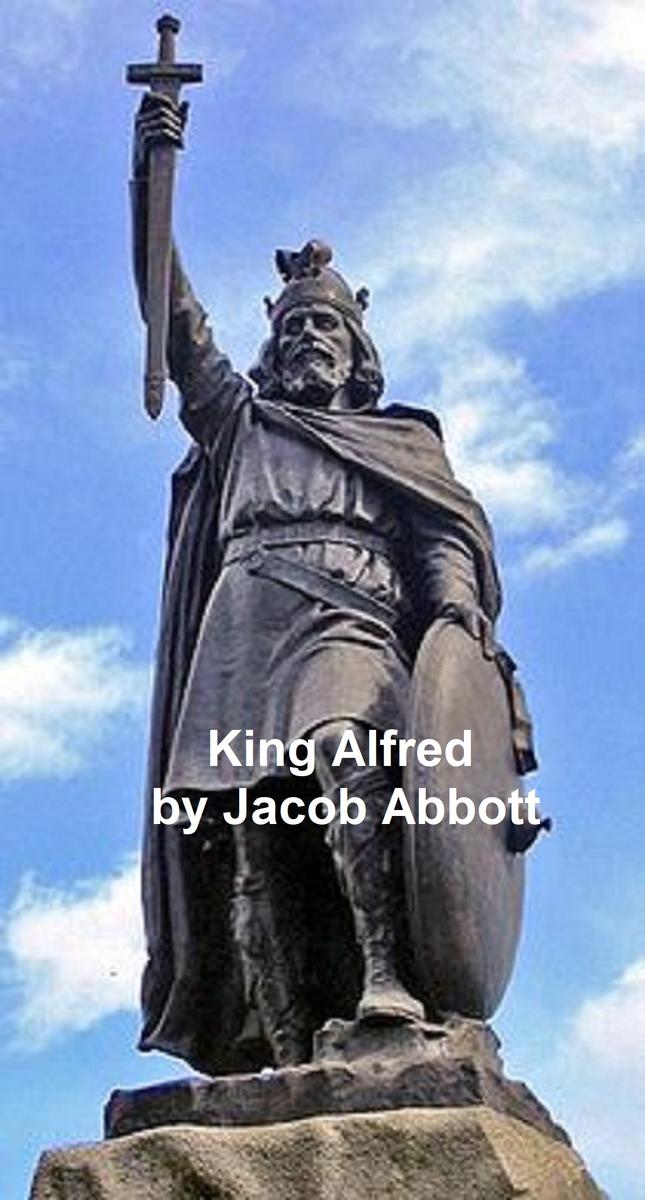
King Alfred of England
¥8.09
According to Wikipedia: "Jacob Abbott (November 14, 1803 – October 31, 1879) was an American writer of children's books. Abbott was born at Hallowell, Maine to Jacob and Betsey Abbott. He graduated from Bowdoin College in 1820; studied at Andover Theological Seminary in 1821, 1822, and 1824; was tutor in 1824-1825, and from 1825 to 1829 was professor of mathematics and natural philosophy at Amherst College; was licensed to preach by the Hampshire Association in 1826; founded the Mount Vernon School for Young Ladies in Boston in 1829, and was principal of it in 1829-1833; was pastor of Eliot Congregational Church (which he founded), at Roxbury, Massachusetts in 1834-1835; and was, with his brothers, a founder, and in 1843-1851 a principal of Abbott's Institute, and in 1845-1848 of the Mount Vernon School for Boys, in New York City. He was a prolific author, writing juvenile fiction, brief histories, biographies, religious books for the general reader, and a few works in popular science. He died in Farmington, Maine, where he had spent part of his time after 1839, and where his brother, Samuel Phillips Abbott, founded the Abbott School."
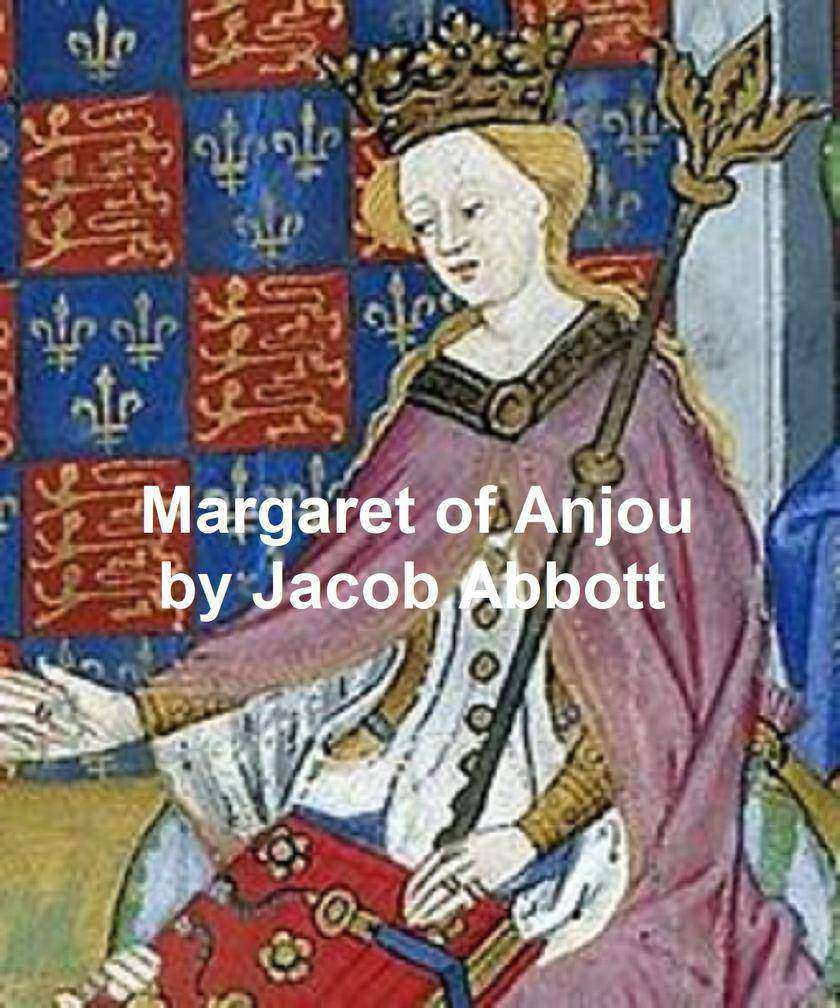
Margaret of Anjou
¥8.09
According to Wikipedia: "Jacob Abbott (November 14, 1803 – October 31, 1879) was an American writer of children's books. Abbott was born at Hallowell, Maine to Jacob and Betsey Abbott. He graduated from Bowdoin College in 1820; studied at Andover Theological Seminary in 1821, 1822, and 1824; was tutor in 1824-1825, and from 1825 to 1829 was professor of mathematics and natural philosophy at Amherst College; was licensed to preach by the Hampshire Association in 1826; founded the Mount Vernon School for Young Ladies in Boston in 1829, and was principal of it in 1829-1833; was pastor of Eliot Congregational Church (which he founded), at Roxbury, Massachusetts in 1834-1835; and was, with his brothers, a founder, and in 1843-1851 a principal of Abbott's Institute, and in 1845-1848 of the Mount Vernon School for Boys, in New York City. He was a prolific author, writing juvenile fiction, brief histories, biographies, religious books for the general reader, and a few works in popular science. He died in Farmington, Maine, where he had spent part of his time after 1839, and where his brother, Samuel Phillips Abbott, founded the Abbott School."
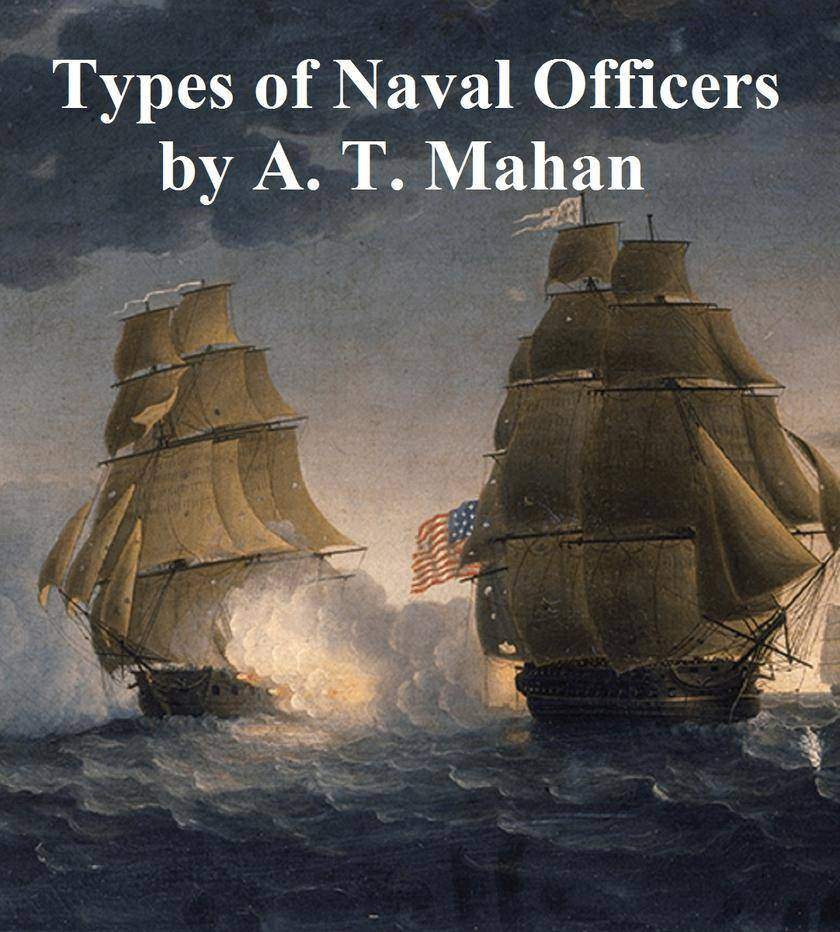
Types of Naval Officers
¥8.09
Classic work of history. According to Wikipedia: "Alfred Thayer Mahan (September 27, 1840 - December 1, 1914) was a United States Navy officer, geostrategist, and educator. His ideas on the importance of sea power influenced navies around the world, and helped prompt naval buildups before World War I. Several ships were named USS Mahan, including the lead vessel of a class of destroyers. His research into naval History led to his most important work, The Influence of Seapower Upon History,1660-1783, published in 1890."
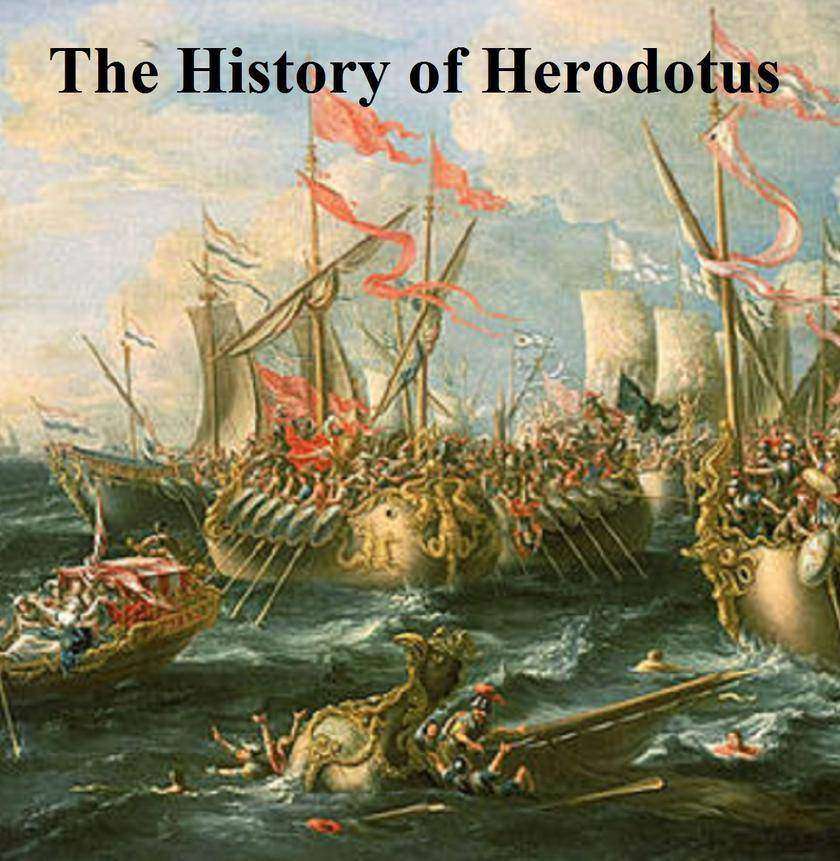
The History of Herodotus
¥8.09
Both volumes in a single file, translated by Macaulay. According to Wikipedia: "Herodotus of Halicarnassus was a Greek historian who lived in the 5th century BC (c. 484 BC–c. 425 BC) and is regarded as the "Father of History" in Western culture. He was the first historian to collect his materials systematically, test their accuracy to a certain extent and arrange them in a well-constructed and vivid narrative.[1] He is almost exclusively known for writing The Histories, a record of his "inquiries" (or ?στορ?αι, a word that passed into Latin and took on its modern meaning of history) into the origins of the Greco-Persian Wars which occurred in 490 and 480-479 BC—especially since he includes a narrative account of that period, which would otherwise be poorly documented, and many long digressions concerning the various places and peoples he encountered during wide-ranging travels around the lands of the Mediterranean and Black Sea. Although some of his stories are not completely accurate, he states that he is only reporting what has been told to him."

Critique of Practical Reason
¥8.09
According to Wikipedia: "Immanuel Kant (22 April 1724 – 12 February 1804) was an 18th-century German philosopher from the Prussian city of K?nigsberg (now Kaliningrad, Russia). He is regarded as one of the most influential thinkers of modern Europe and of the late Enlightenment. Kant created a new widespread perspective in philosophy which is influencing enlightened philosophy until the 21st Century. He published important works of epistemology as also scripts in coherence to religion, law and history. His most important work is the Critique of Pure Reason, an investigation into the limitations and structure of reason itself. It encompasses an attack on traditional metaphysics and epistemology, and highlights Kant's own contribution to these areas. The other main works of his maturity are the Critique of Practical Reason, which concentrates on ethics, and the Critique of Judgment, which investigates aesthetics and teleology."
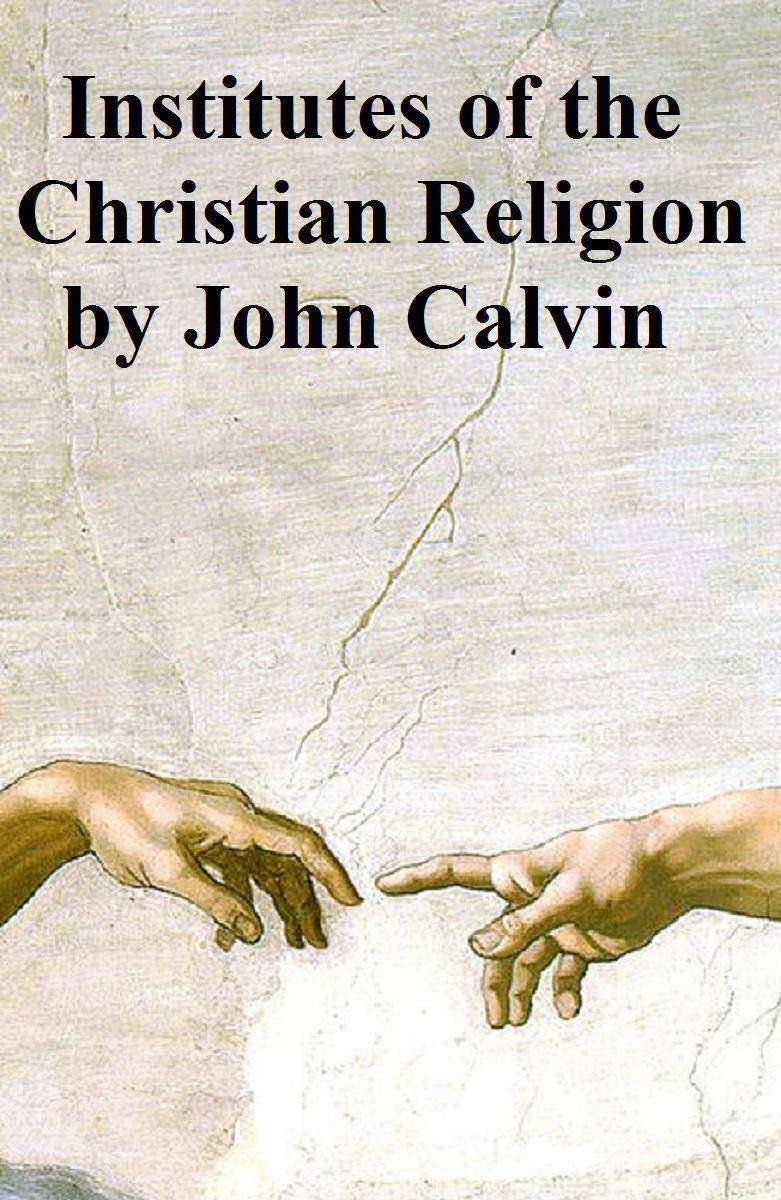
Institutes of the Christian Religion
¥8.09
According to Wikipedia: "John Calvin (né Jean Cauvin; 10 July 1509 – 27 May 1564) was an influential French theologian and pastor during the Protestant Reformation. He was a principal figure in the development of the system of Christian theology later called Calvinism. Originally trained as a humanist lawyer, he suddenly converted and broke from the Roman Catholic Church in the 1520s. After a violent uprising against Protestants in France, he was forced to flee to Basel, Switzerland, where in 1536 he published the first edition of his seminal work, Institutes of the Christian Religion. Calvin was invited by William Farel to help reform the church in Geneva. However, the city council resisted the implementation of Calvin and Farel's ideas and both were expelled. At the invitation of Martin Bucer, Calvin proceeded to Strasbourg where he became the minister of a church of French refugees. He continued to support the reform movement in Geneva, and was eventually invited back to lead its church. Following his return he introduced new forms of church government and liturgy, despite the opposition of several powerful families in the city who tried to curb his authority. During this period, Michael Servetus, a Spaniard known for his heretical views, arrived in Geneva. He was denounced by Calvin and executed by the city council. Following an influx of supportive refugees and new elections to the council, Calvin's opponents were forced out. He spent his final years promoting the Reformation both within Geneva and throughout Europe."

Montcalm and Wolfe
¥8.09
Classic work of history about the war between France and England for Canada. According to Wikipedia: "Francis Parkman (September 16, 1823 - November 8, 1893) was an American historian, best known as author of The Oregon Trail: Sketches of Prairie and Rocky-Mountain Life and his monumental seven volume France and England in North America. These works are still valued as history and especially as literature, although the biases of his work have met with criticism. "

Story of the War in South Africa 1899-1900
¥8.09
Classic work of history. According to Wikipedia: "Alfred Thayer Mahan (September 27, 1840 - December 1, 1914) was a United States Navy officer, geostrategist, and educator. His ideas on the importance of sea power influenced navies around the world, and helped prompt naval buildups before World War I. Several ships were named USS Mahan, including the lead vessel of a class of destroyers. His research into naval History led to his most important work, The Influence of Seapower Upon History,1660-1783, published in 1890."
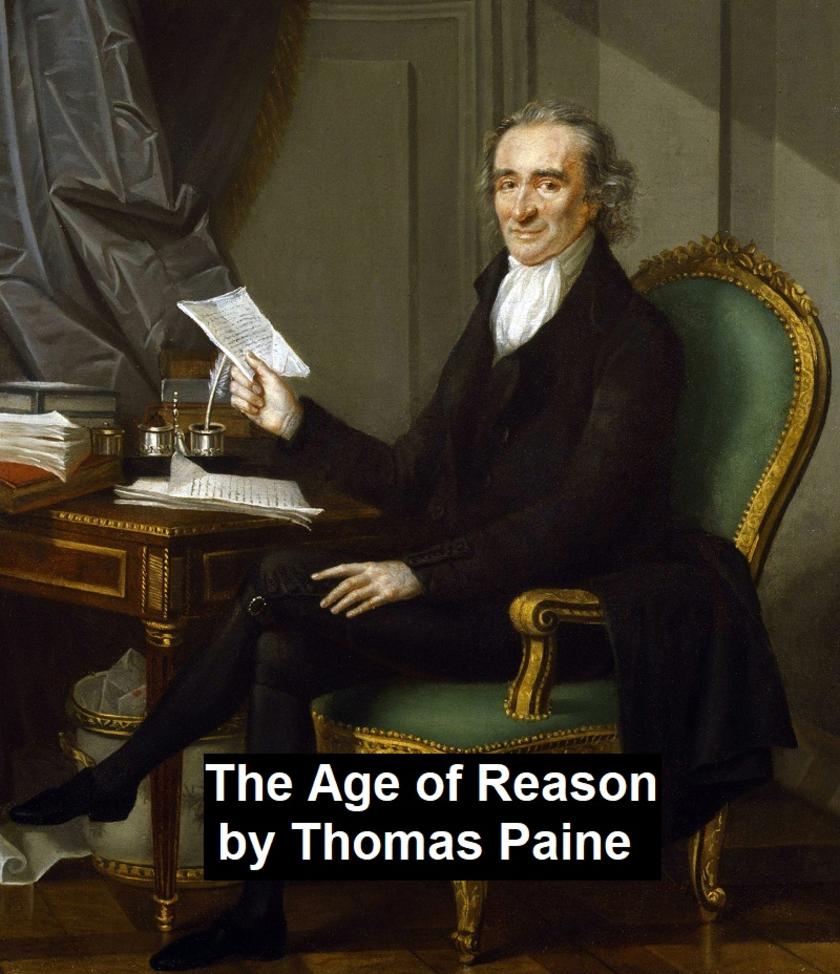
The Age of Reason
¥8.09
Classic work of political science. According to Wikipedia: "Thomas Paine (Thetford, England, 29 January 1737 - 8 June 1809, New York City, U.S.) was an English pamphleteer, revolutionary, radical, classical liberal, inventor and intellectual. He lived and worked in Britain until the age of 37, when he migrated to the American colonies just in time to take part in the American Revolution. His main contribution was as the author of the powerful, widely read pamphlet, Common Sense (1776), advocating independence for the American Colonies from the Kingdom of Great Britain, and of The American Crisis, supporting the Revolution."
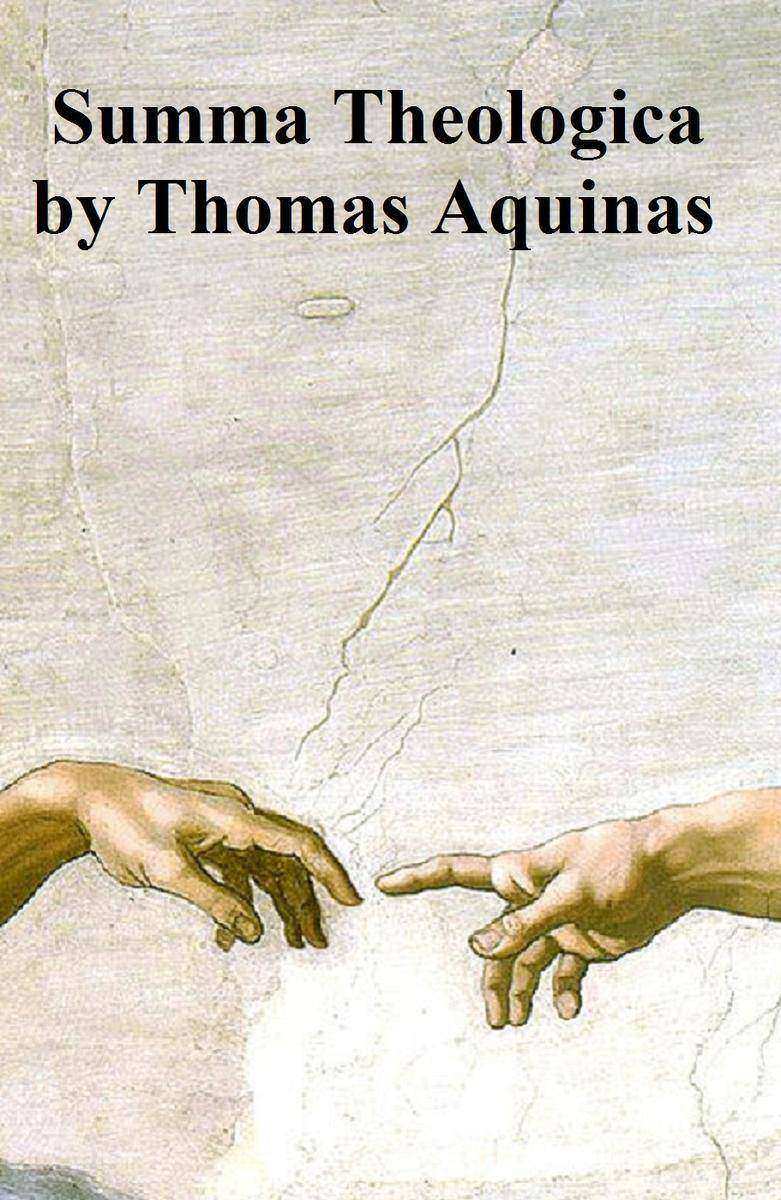
Summa Theologica: The sixth edition (considered the "definitive" edition)
¥8.09
According to Wikipedia: "The Summa Theologica (or the Summa Theologiae or simply the Summa, written 1265-1274) is the most famous work of Thomas Aquinas (c. 1225-1274) although it was never finished. It was intended as a manual for beginners as a compilation of all of the main theological teachings of that time. It summarizes the reasonings for almost all points of Christian theology in the West, which, before the Protestant Reformation, subsisted solely in the Roman Catholic Church."
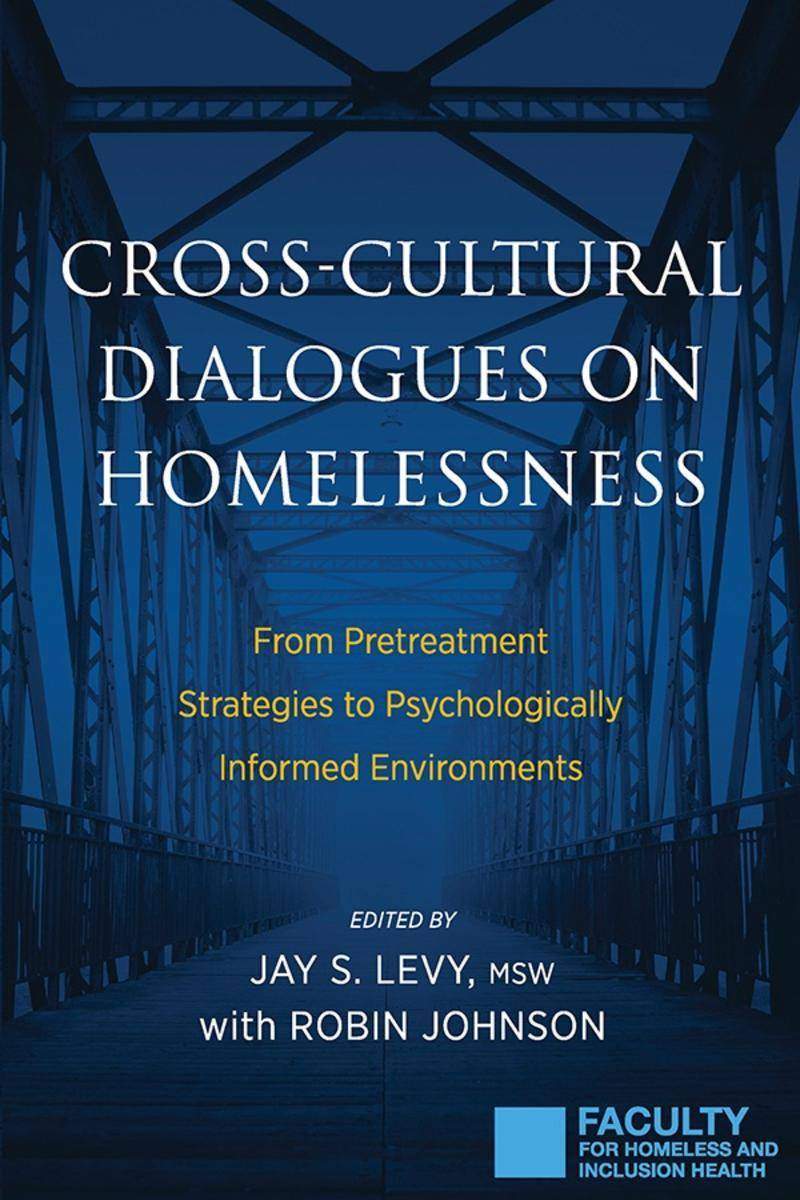
Cross-Cultural Dialogues on Homelessness
¥81.34
Cross-Cultural Dialogues on Homelessness Reveal New Insights This groundbreaking book presents compelling narratives and innovative approaches for addressing the psychological traumas that can underlie homelessness and is the first to explore in-depth what the US and UK can learn from one another. Authors focus on understanding and applying the precepts of Pretreatment and "Psychologically Informed Environments," as well as effective ways to promote productive dialogue on all levels -- with clients, clinicians, advocates, policymakers, researchers, and others. Detailed case studies review and integrate "hands on" practice with Appreciative Inquiry, Open Dialogue, and Common Language Construction methods. "In Cross-Cultural Dialogues on Homelessness, Jay Levy and co-authors provide the conceptual tools, the hitherto 'missing language', needed by practitioners and policymakers working with excluded individuals. This book has been informed by the authors' practice and should come with a warning: it will revolutionise how you work -- irreversibly and, undoubtedly,for the better" -- Cliona Ni Cheallaigh, MB, MRCP, PhD, Senior Lecturer in Medical Gerontology, Trinity College (Dublin) "Jay distills many decades of his own street experience, and by cross comparing his brilliant schema of Pretreatment with the British model of Psychologically Informed Environments (PIE), he reveals the underlying common processes of effective street engagement. As a long-time practitioner of street medicine, I recommend this book to anyone who seeks that sacred place on the streets where healing begins." -- Jim Withers, MD, Founder and Medical Director and Operation Safety Net and the Street Medicine Institute (Pittsburgh) "Cross Cultural Dialogues on Homelessness is a timely and important collection of the latest thinking on how we should respond to the traumatic life experiences of so many homeless people. Levy and colleagues suggest a commitment to reflective dialogue will improve both the quality of frontline services and the way policy makers, managers and commissioners think about responding to the needs of people pushed to the margins of our societies." -- Alex Bax, Chief Executive, (London) Pathway - transforming health services for homeless people "This book is different because it is based on theory and practises, dialogue and the sharing of ideas - from both sides of the Atlantic. The human interest stories add great value to the book, which should be required reading for anyone interested in creating a better world for his/her fellow human beings. It should be read and debated by all with a vision for a better future for those who need services and those attempting to provide them." -- Alice Leahy, Director of Services Alice Leahy Trust (Dublin, Ireland) Learn more at www.JaySLevy.com From LHPress - www.LHPress.com

Secrets:A Story of Addiction, Grief & Healing:A Story of Addiction, Grief & Heal
¥81.67
Introduction to Secrets: A Story of Addiction, Grief & Healing ? Highly educated individuals with doctorates publish papers full of information, facts, and figures, explaining reasons for addiction. It is often good information extensively researched and properly cited. I do not have a Ph.D. or a doctorate. I am simply one who loves to teach, write, and more importantly, a mom who loves her family. I majored in motherhood. I minored in English. ? Sadly, I lost something most dear to my heart, my daughter’s voice. I only hear her voice as echoes in my mind, and as I read her journals. Her journals are full of her—her voice, worries, goals, sadness, hopes, desires, disappointments, happiness and love. Her writing identified her feelings, but they do not clearly define her as a person because her life was so much more. How to define, articulate her essence, her multi-dimensional personality? ??????????? In writing this story, I used words and prose that allow the reader to peer into the looking glass, perhaps to see beyond themselves to what lurks in the background of the human soul. How special each of us really is. We all deserve to be loved and to be recognized for the good we do, for the difference we make by just being. ? The writing of this story has been incredibly difficult. I was told that I was terribly hard on myself. Well, the truth is not always pretty. But accepting the truth as a means to better understand one’s environment and to move forward can be healing. It is not easy. Healing takes time. It can be painful. It is often long and arduous. Sometimes, the nearly healed wound is reinjured, the scab is torn loose, exposing the tender flesh beneath. It may ooze again for a time, but then the healing begins again. Grief can be like that. A year has passed; a year of grief, healing, learning, better understanding addiction. ? The road leading to addiction and the reasons one succumbs to substance use disorder is long and winding. Addiction is complex and those who struggle with it usually face other mental health challenges too. They struggle with loss, loneliness, pain, and emptiness. They long for fulfillment. They feel misunderstood, misjudged, stigmatized, unloved. These voids must be filled. The human spirit demands it. ? Society is quick to formulate judgments toward those struggling with addiction. However, is addiction a choice? Is mental illness a choice? Everyone’s story is different. I can only share mine. The effects of addiction ripple out, washing over everyone in some manner or form. Like many, I originally thought substance use was a choice, a deficit in one’s moral code, a weakness that one should be able to control. Why must tragedy occur to inspire illumination? ? As I began to write, my inner eye became focused, intent on rediscovering Sarah. The Sarah I knew as a child had long ago morphed into an adult I did not recognize or understand. I blamed myself. Where did I go wrong? In how many ways did we fail her as her parents? I wanted to understand. Will sharing my story allow others to more easily identify the symptoms of addiction and to recognize addiction as a disease? I hope so. That is why I am breaking the silence, using Sarah’s voice, as well as my own with a clear objective: To de-stigmatize addiction. ? Can we work towards removing the fear and the terrifying stigmatization attached to addiction and try something different? Let us direct positive energies toward these struggling souls. Rather than projecting fear and judgment, what would happen if society projected understanding, empathy, compassion, and acceptance? Acceptance that they have an illness, not just addiction, but often, buried beneath the surface, acute sadness, and unresolved conflict. ? As society begins to remove the stigma of addiction, boundaries to seeking recovery will lessen, improving the odds of recovery, decreasing the risk of death by overdose. Sarah’s death must not be an ending—let it be a beginning towards understanding, acceptance, and empathy.

You Can Play Guitar in Few Weeks
¥138.81
As a lot of people we studied music at schools. Did someone catch enough to play? We can’t say yes on this question.? Afterwards we learn to play using different books and manuals. These papers promised many good things but that was sort of suffering to learn to play. By trial and error we have figured out quite enough information which can eliminate this suffering. So we decided to write a book if we could read one we would not get through difficulties for many years long.In this book we tried to explain the origin and fundamental properties of music. We named this as anatomy of music because we tried to dive in the depth of it. We just used notes to explain how to play without notes and tablatures. Nevertheless we delivered music theory quite completely trying to eliminate confusive moments.

Como pensar por si mesmo
¥8.18
Você pode até n?o perceber, mas tudo o que você pensa foi determinado por outra pessoa. Suas convic??es e cren?as n?o lhe pertencem, foram ditadas e você copiou.Se quer mesmo ser dono de seus pensamentos, leia este guia.
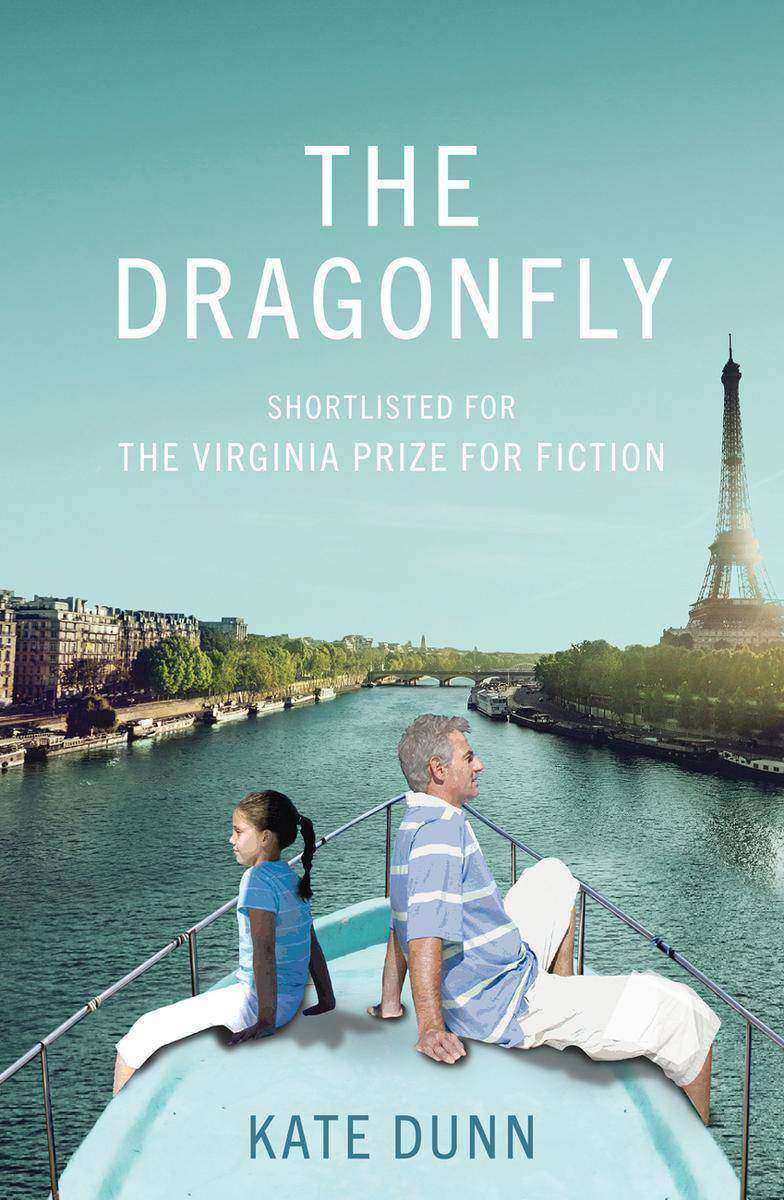
The Dragonfly
¥40.79
Awarded a Blue Star from Kirkus Reviews. When Colin discovers his son is on a murder charge in France, he trails his small boat, ‘The Dragonfly’, across the channel to stay in Paris to try and help him. There he meets his grand-daughter – the irrepressible Delphine – for the first time. They embark on an exciting boat journey through the picturesque French canals, heading south through Burgundy, ‘until the butter melts’. Along the way, they catch up with Tyler, a spirited American, and through various mishaps and misunderstandings, they land big fish, cultivate new loves and uncover a burning secret. But can Colin finally help his son get off the hook?
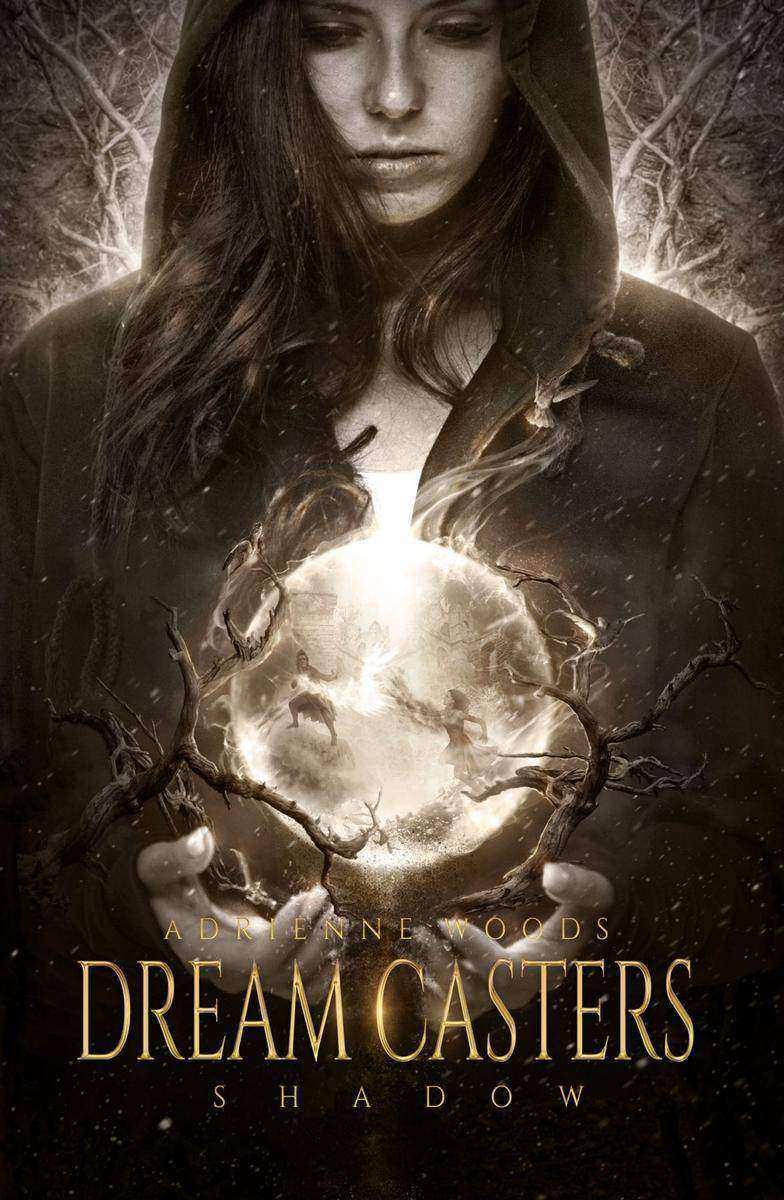
Dream Casters:Shadow
¥40.79
Chastity Blake discovered the hard way what she was: a modern-day Sandman. But things aren't looking up for Chastity. She is guarding a secret deep within her — her dark sand, or what Reverians call her Shadow. Shadow Casters are known for their dark dreams, the nightmares they create. If she's caught with dark sand, she may be subjected to harsh interrogation, even banished to the Oblivion with the other Shadow Casters... and that is SO not on her list. Will she be able to hide her darkness from the most powerful Somnium alive? How long can she outrace her destiny before true nature catches up with her? Shadow Casters is the follow-up of bestselling author Adrienne Woods' second series, Dream Casters.

How To Make A Living With Your Writing With Books, Blogging and More Books, Blog
¥53.06
Would you like to make a living with your writing? This book will show you how. I spent 13 years working as a cubicle slave in the corporate world. I was miserable in my job and my creativity was stunted by the crushing daily grind. Then I started writing books and blogging, using my words to create products and attract readers. In September 2011, I left my corporate job to become a full-time author and creative entrepreneur and since then I've grown my business year on year, all based on my writing. More importantly, I'm finally living the happy life I always wanted. I'm not a Kindle or blogging millionaire and this is not a get rich quick scheme. But I will share with you how I make a multi-six-figure income from writing books, blogging and marketing in an ethical manner. We're living in the best time ever to make a living with your writing! Read on to learn more. The book includes the following Table of Contents: Overview of how I make a living and income split First principles Tips on writing and productivity Tips on mindset Part 1: How to make money from books It's not just one book Your publishing options: Traditional publishing Changes in the publishing industry Your publishing options: Becoming an indie author How to self-publish an ebook How to self-publish a print book How to self-publish an audiobook Part 2: How to make money online in other ways A business powered by content marketing Product sales Affiliate income Consulting or coaching Professional speaking Advertising and sponsorship Freelance writing Tips for content marketing The transition and your next steps Plus/ Companion Workbook so you can answer the questions in the book for yourself. If you'd like to make a living with your writing, click to sample or buy now.
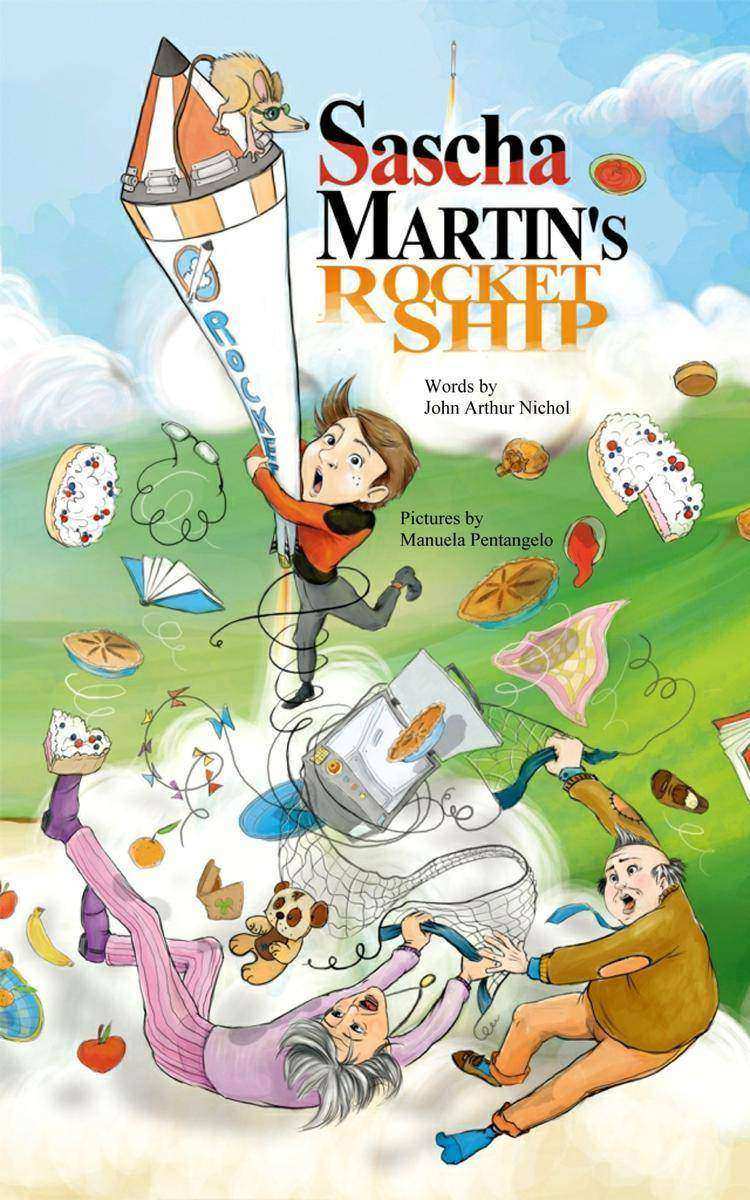
Sascha Martin's Rocket-Ship A hilarious sci fi action and adventure book for kid
¥0.01
The audiobook of Sascha Martin’s Rocket-Ship is free when you download this Kindle book! Eight year old Sascha Martin is always inventing things, so he knows how they work. Mostly. For class news time he brings in a rocket that towers over everyone, including the teacher … but he's written "Don't touch!" on the rocket, so what could possibly go wrong? "The story is 'poetry in motion' for rocket ships! Manuela Pentangelo has visually interpreted John's verse with all the best icons from rocketry and science in the gorgeous illustrations." Samantha Ridgway, scientist, mother, and record-holding Australian rocketeer. This children’s picture book is ideal for kids age 8-10, but readers of all ages, from beginners to preteens to adults, will love this wild, funny, deliciously silly adventure wrapped in verse that rhymes and Manuela Pentangelo’s beautiful full colour artwork. Inside, you’ll find a link to the free audiobook, so if you lose your voice reading Sascha Martin's Rocket-Ship aloud, the audiobook can take over. "Delightful, rhyming story that keeps your fingers turning the pages." E. C. Kraeft, author of White Castle (Book One in her Elf Kingdoms series of children’s books). "I am the mother to an energetic young reader that loves all things books. I am constantly looking for new titles that we can read together and I believe I have struck gold with this one! … I was pleasantly surprised to discover the book rhymed throughout (we love rhymes!) and I must add that they are very well done! This book does a great job at turning an already fun story into one that you can practically sing together (which does wonders with a toddler!!)." Thomai Dion, author of the Think-a-Lot Tots early science readers. Sascha Martin's Rocket-Ship is the first in a fun new series of children’s science fiction action and adventure books, about a kid who knows just enough to be really, really dangerous! Author Q&A Why do you write stories in verse? Well I’m compelled to write them. I don’t decide to write stories in verse. It’s something my mind does in the background. I’ll suddenly realise there’s this rhyming couplet in my mind and that it’s been there for a while, and it’s the start of a story. Then I have to work out the rest of that story, all in verse, and that’s just hard work. But it begins unconsciously. Mind you, I do love rhythm and rhyme and poetry. Kids do, too. There’s a poetry-shaped hole in everyone, as an Australian poet once said, and I think that’s right. What draws you to science fiction? I’ve always loved scifi. It’s what I read as a kid, as a teen, what I read now. Along with mystery and suspense. Scifi sets kids free so their imagination is the only limit. Monsters, aliens, dinosaurs, time travel, travel to the stars, portals to other worlds; you can have all that. With science fiction, kids are free to go anywhere in the universe - in any ‘verse, and it seem there might be lots of universes out there. As many universes as there are kids, at least. It’s a bit like magic. Kids love magic, and there are lots of kids who love sci fi. It’s cool. Sci fi is cool. What’s coming up in the Series? Time Travel next, and lots of kids humor. Book 2 is Sascha Martin’s Time Machine. Sascha invents a machine to take his class back in time, and of course there’s a glitch. Other books in the series have bizarre balls, zombies, aliens, dinosaurs, space-ships and portals, a bit of an apocalypse. So much action and adventure. But one of the books is really embarrassing, super-embarrassing, so kids will cringe even as they’re laughing. Illustrating books takes time, but there’ll be plenty of free sneak previews along the way so kids can get a glimpse of what's to come.
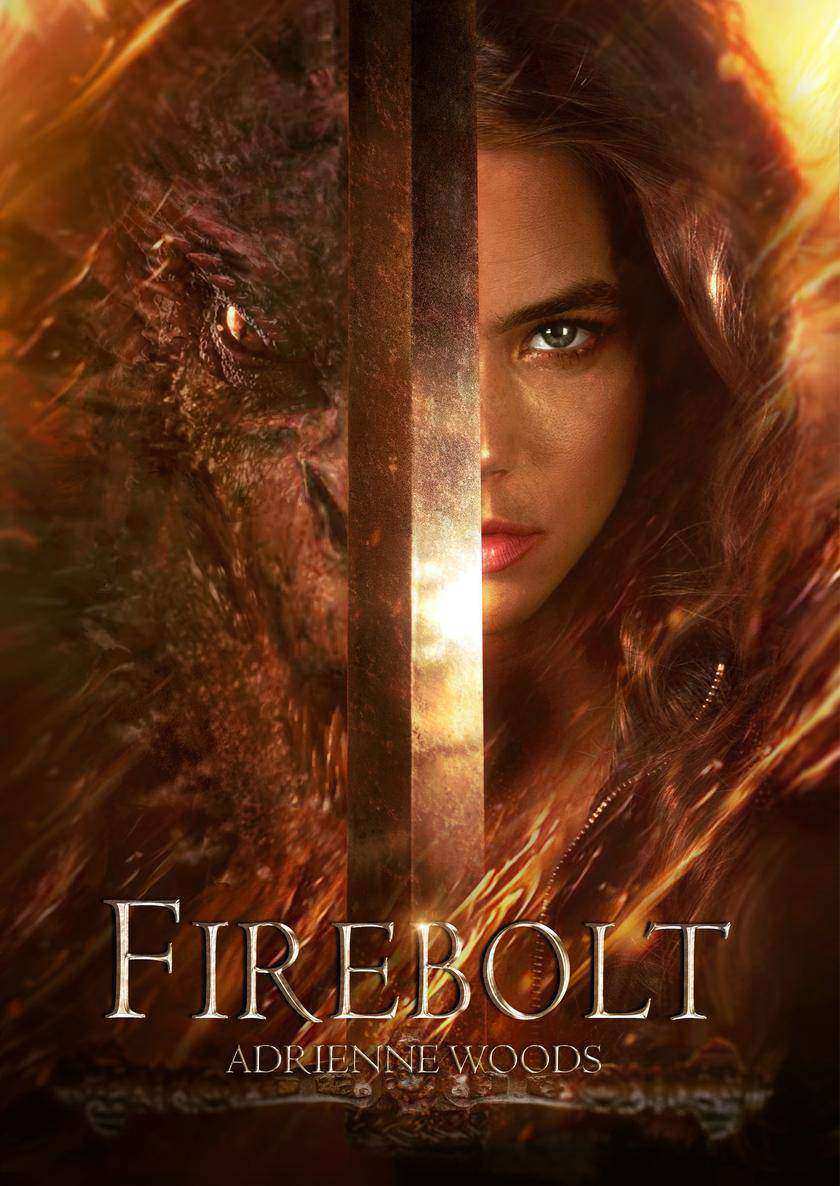
Firebolt
¥0.01
Lots of Harry Potter-like qualities to this book. And a book any fan of the aforementioned series should check out! Jamie E. Amazon Reviewer Sometimes a "Young Adult" book is a great all around story. This is one of those books. By Barbara McKinley Amazon Reviewer This book is the BEST dragon book I've ever read! (After Eragon) THE BEST! I COULDN'T STAND THE AWESOMENESS!? Goodreads Reviewer With almost 1000 5star reviews on Goodreads, now is your chance to find out what makes Firebolt the next best read. Download your copy now and tell your friends all about it. Dragons. Right. Teenage girls don’t believe in fairy tales, and sixteen-year old Elena Watkins was no different. Until the night a fairy tale killed her father. Now Elena’s in a new world, and a new school. The cutest guy around may be an evil dragon, a Prince wants Elena’s heart, and a long dead sorcerer may be waking up to kill her. Oh. And the only way Elena’s going to graduate is on the back of a dragon of her own. Teenage girls don’t believe in fairy tales. Now it’s time for Elena to believe – in herself.
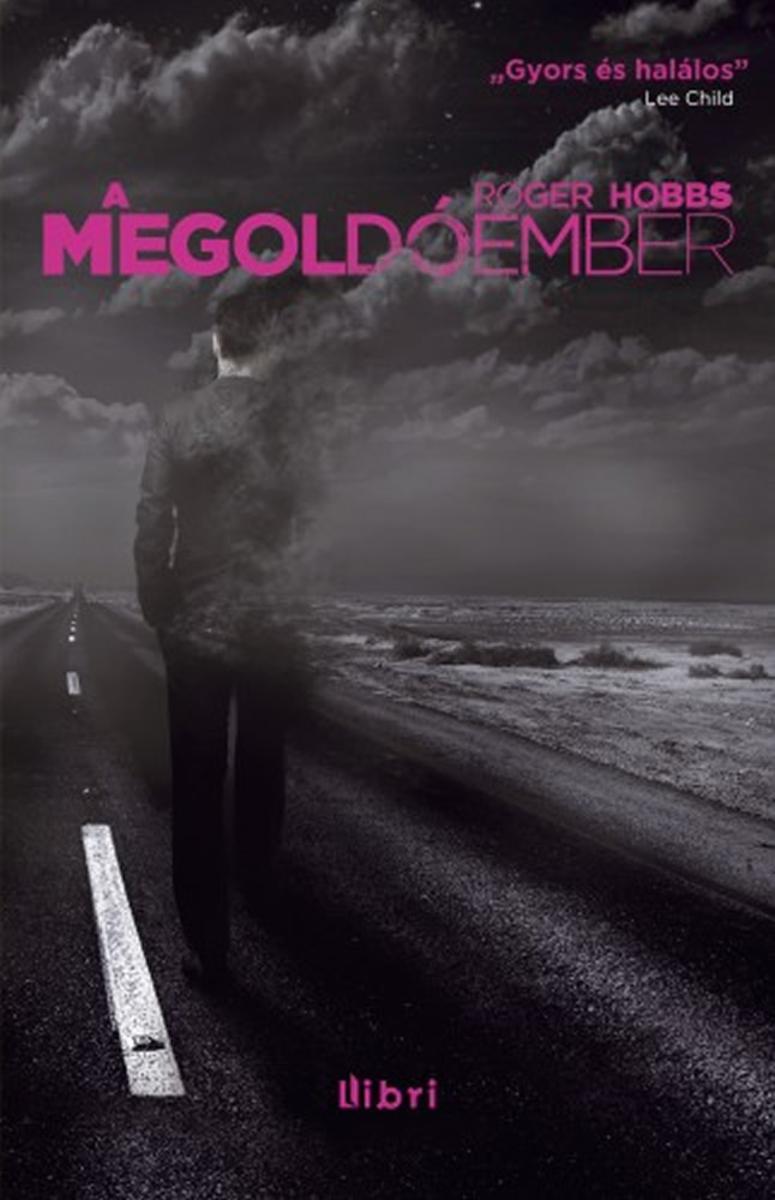
A megoldóember
¥0.01
Las Vegas, 1974. Kaszinók, szerencselovagok és a sivatag. Itt kezd?d?tt minden Jack Delton életében. Az els? kísértés, az els? b?n, az els? nagy kaszálás. A kamasz fiú itt tanulja meg, hogyan kell megfigyelni az embereket, hogyan kell a b?rük alá bújni, hogyan kell senkivé válni – hogy aztán évekkel kés?bb mint profi b?n?z? kamatoztathassa kül?nleges képességét az FBI ügyn?keivel és az alvilággal szemben. Jack Delton ugyanis nem létezik. A szakmában csak úgy ismerik: a Szellem. Nincs bankszámlája, nem használ útlevelet, nincs nyoma egyik nyilvántartásban sem. Nem lehet megfogni… Roger Hobbs huszonnégy évesen megírta els? nemzetk?zi bestsellerét. A Ghostman egy évvel kés?bb minden jelent?s kriminek járó irodalmi díjat bes?p?rt, huszon?t országban vették meg a kiadás jogait, és nagyszabású film készül bel?le. A rajongók kérésére Hobbs megírta Jack Delton el?t?rténetét, amelyben felfedi a Szellem valódi kilétét.

Sous Vide Cookbook Remarkable Sous-Vide Recipes for Cooking at Home (Cooking in
¥0.01
Are you still choosing between healthy and tasty food?Here is solution for youYou shouldn’t have to go out to expensive restaurants just to eat perfectly cooked food. Whether you’re a sous vide enthusiast seeking to add new recipes to your repertoire, or just getting into the technique, this book will show you how easy it is to make restaurant quality food in your very own home.Sous Vide attracts people all over the world. This method can cook the wide variety of the meals; especially this thing makes the technology in-demand nowadays. The restaurant method of cooking attracts not only chefs but a housewife and just food lovers.




 购物车
购物车 个人中心
个人中心



